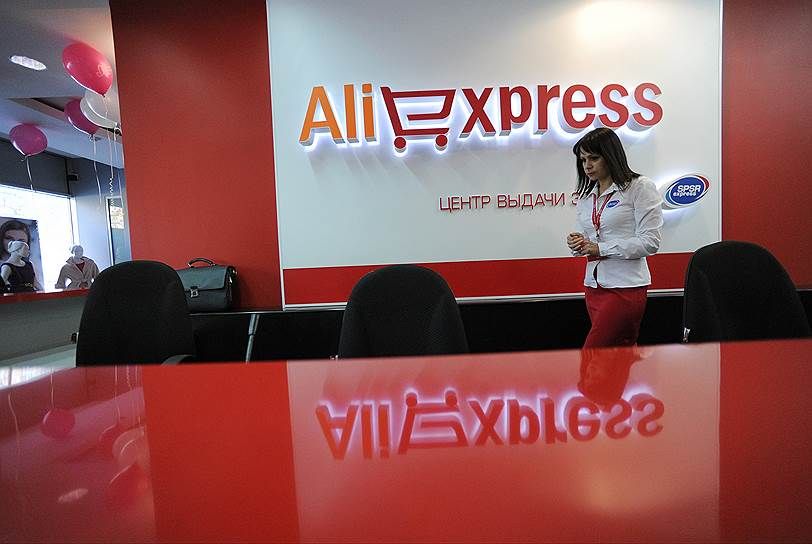Business opposes tightening rules for online stores
Internet companies and commodity aggregators have criticized the bill of Rospotrebnadzor, which proposes to equate the responsibility of online intermediaries to the one that ordinary stores carry. In defense of aggregators
The Russian Association of Electronic Companies (RAEC; unites more than 100 organizations) sent a letter criticizing the amendments to the law “On Protection of Consumer Rights” to the Ministry of Economic Development and Trade, Rospotrebnadzor, the Ministry of Industry, Ministry of Communications and the Government today.
The document, signed by the head of the RAEC Sergei Plugotarenko and the head of the cluster “RAEC / Electronic Commerce” (unites the players of the online trading market) Ivan Kurguzov, says that the current version of the draft law does not solve the tasks that the Rospotrebnadzor has outlined in the explanatory note buying goods online. At the same time, it carries a number of significant risks for business, both in the sale of goods via the Internet and in the field of information technologies (media, information resources, etc.), the letter says.
The document puts in unequal conditions the work of online stores and companies that sell goods through catalogs or through a TV shop, the authors of the letter warn. “It is not clear why other, more stringent requirements are being established for organizations selling goods on the Internet,” the letter says.
The amendments are aimed at the activities of Russian online stores, while the main problem related to the protection of consumer rights in the sale of goods is connected with the operation of foreign online sites in Russia, according to RAEC. As the practice of Internet companies shows, the share of consumer complaints related to the non-receipt of complete information about a product is “extremely insignificant,” the document says. And the existing legislation already contains rules that protect the user from buying a poor-quality product on the Web – he can refuse an order at any time before receiving it and within seven days after delivery. This norm, in the opinion of RAEC, “fully compensates for possible unfavorable consequences for the consumer,” related to the lack of information about the product or seller.
The authors of the letter draw attention to the fact that the term “commodity aggregator” in the current version of the draft law may be covered by the media if their website contains information about products or a product review, as well as informational sites where users exchange opinions or feedback on products (forums ).
RAEC warns that if the bill is adopted in the current edition, some commodity aggregators may cease their activities, including by decision of state bodies. This will lead to a fairly rapid replacement of domestic Internet aggregators by foreign Internet sites, which are not subject to the norms of consumer protection legislation, the authors of the letter complain.
The online ombudsman Dmitry Marinichev agrees with the position of RAEC. If the buyer placed an order, for example, on Yandex.Market and did not like the quality of the goods, he would be able to complain to the Federal Service, and the department, in turn, would be able to block Yandex.Market, describes a hypothetical situation Marinichev. The point is that trade aggregators are responsible under the law “On Consumer Protection”, while they do not sell goods, do not receive money for it, but only provide an Internet service, the Internet Ombudsman stressed.
Over regulation
The position of RAEC is a consolidated position of all its members, Denis Kosenkov, Director of Corporate Relations and Legal Affairs at Wikimart, confirmed to RBC. According to him, Internet aggregators and commodity platforms give the consumer the information that the sellers of this product provide. “We simply place information about the seller’s offer on our website. Aggregators do not hold this product in their hands and have nothing to do with it, ”Kosenkov noted. Excessive regulation will lead to the fact that such a business model as commodity aggregators, will be in a difficult situation: companies simply can not operate normally. Consumers will also suffer from this and they will stop receiving a large selection of goods at competitive prices in one place, he said.
Yandex.Market already communicates to the consumer the information provided by advertisers about the seller, price, availability, basic characteristics of the product, said a representative of Yandex Elina Staviskaya. The availability of reliable and complete additional information depends on whether shops and manufacturers provide it in the required amount, she said. The adoption of the amendment may entail the fact that the aggregators will impose a number of obligations, the execution of which depends on the sellers and producers of goods, Staviskaya added. She confirmed that the company was involved in the drafting of the document.
At the end of June, Rospotrebnadzor published amendments to the law “On Protection of Consumer Rights”, which, according to the Ministry, should protect the rights of buyers when purchasing goods through online shopping. Rospotrebnadzor proposed introducing responsibility for information intermediaries, such as online aggregators of information about products, such as Yandex.Market, WIkimart, AliExpress, etc., for providing consumers with incomplete or false information about sellers, goods and services.
As follows from the explanatory note to the bill, the need for such regulation arose due to the fact that it is impossible to bring to justice those responsible for violating the rights of consumers – the necessary information about sellers on the sites of aggregators is often absent. The situation is complicated by the “foreign element,” Rospotrebnadzor writes and cites statistics, according to which 30% of purchases on the Internet in 2014 (totaling about $ 6 billion) accounted for foreign online stores.
The total volume of the e-commerce market in 2014 amounted to 713 billion rubles, according to Rospotrebnadzor, expert estimates. In such a situation, there is nothing left but to oblige information intermediaries (who, although not sellers in the classical sense, but receive money from buyers), independently control information posted about products and sellers on websites, and if it is unreliable, bear responsibility with sellers of goods.
Stage of discussion
The latest available version of the bill on the website regulation.gov.ru, designated as the text of the draft law for ODS (assessment of the regulatory impact of the Ministry of Economic Development and Trade of Russia), does not contain the originally proposed amendments to the Code of Administrative Offenses (CAO). Thus, if the draft law is adopted in its current form, a violation of the law “On Protection of Consumer Rights”, as amended, will not threaten online stores with blocking, as in the original version.
The partner of the A2 Law Office, Natalia Ryasina, believes that the disappearance of amendments to the Administrative Code from the draft law may be due to the fact that the legislator must first secure the legal status of such intermediaries who, on the one hand, are not real sellers of goods, and on the other hand are cash recipients for product.
Rospotrebnadzor, by the way, also abandoned the original intention to assign the status of “supplier” to online stores: now the supervisory authority suggests calling such sites “aggregators of goods (and services) on the Internet”, while retaining the requirement that they should be responsible similar to direct sellers.
Rospotrebnadzor plans that the bill will come into force in January 2016, now it is at the stage of public discussion of the draft text.
At the end of August, the Rospotrebnadzor bill has already criticized the Expert Council (EC) at the Russian government. In the conclusion of the EC, sent to the Minister of the Russian Federation on the issues of the “open government” Mikhail Abyzov, to the Ministry of Communications and the Ministry of Economic Development, it is noted that the draft law is “raw” and threatens to restrict the competitiveness of online stores both in comparison with TV stores and catalogs and in comparison with foreign electronic trading platforms that will not be subject to Russian law. The EC also believes that the bill must prescribe the obligation of the sellers and manufacturers of the goods to provide aggregators with complete and reliable information, since the aggregators themselves do not sell the goods and therefore do not have the information and cannot guarantee its authenticity.




